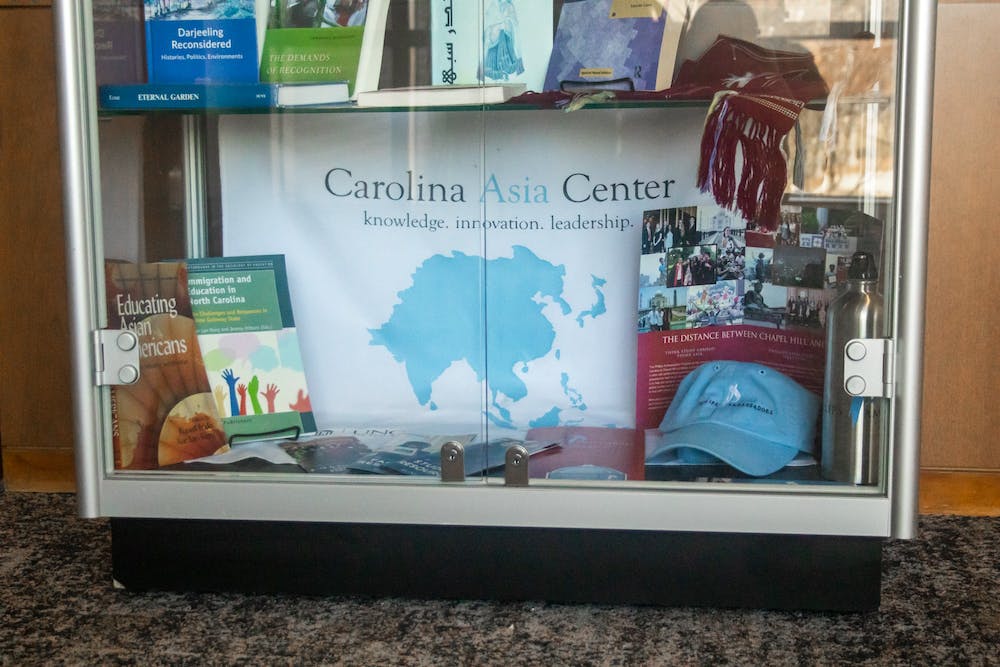This is a cross-posting of an article from the Daily Tar Heel. The original article was written by Brianna Atkinson and can be found here. The photo above was taken by Serena Sherwood.
Southeast Asia is home to over six hundred million people, over 1,000 languages and countries with some of the world’s fastest-growing economies. But in the Southeastern part of the United States, there are not many collegiate resources dedicated to studying it.
This is something a new program at UNC seeks to change.
The initiative, called Bringing Southeast Asia Home, is part of the Carolina Asia Center and the result of a $900,000 award from the Henry Luce Foundation. Christian Lentz, associate professor of geography and the grant’s principal investigator, said the aim of the initiative is to bolster Southeast Asian studies at UNC.
“If you look at the landscape of Southeast Asian studies in the United States it’s concentrated in the west coast and then there is a number of institutions in the upper Midwest — Michigan, Wisconsin, Ohio — and then New York State, Connecticut, Northeast,” Lentz said. “And that’s kind of it. The American South doesn’t have much, that was one of our main arguments is look, we need these resources here.”
While there are multiple student groups dedicated to Southeast Asian studies at UNC, the same cannot be said for what is offered at an academic level. Becky Butler, BSEAH’s assistant director, said Southeast Asian studies have been overlooked compared to other regions such as East and South Asia.
“UNC-Chapel Hill is an R1 research institution, so it should be on the forefront of all domains of inquiry and this was something that was missing,” Butler said. “Our state is home to so many growing communities of Southeast Asians and Southeast Asian Americans that I think the University would be remiss not to consider those stakeholders in our programming and our research and all the things that we do.”
The initiative has begun to fill this gap by hosting seminars for researchers to share their work, growing UNC’s Vietnamese language course offerings and creating a workshop group for professional students researching Southeast Asia.
Leeann Ji is the facilitator of the workshop group and a graduate student in the Gillings School of Global Public Health.
Ji said when she first came to Gillings, she was concerned the school would not have enough resources for her research. She said while there is a lot of necessary research being done in the school, it mainly revolves around South America, Central America and Sub-Saharan Africa — which is nowhere near her focus of study, Southeast Asia.
That was until she heard about the Bringing Southeast Asia Home initiative.
“Finding this group has given me a lot of hope and has given me a lot of validation that I made the right choice in coming to UNC,” Ji said. “I think the level of investment in Southeast Asian studies is really remarkable and just the passion and enthusiasm of this group. Even the Carolina Asia Center feels for this field of study. It just makes me feel like I definitely belong here.”
This sense of belonging also carries beyond research. Zardas Lee, a history Ph.D. candidate, said the workshop group makes them feel valued and more grounded in a community.
“I feel more at home here,” Lee said. “Especially as an Asian student, being able to be in a group who are mostly, I would say a lot of them are also of Asian heritage or actually from Southeast Asia, especially from Indonesia. So, in this sense, I do not just get academic support. We don’t just exchange academic ideas, but we have emotional support towards each other as well.”
Butler said this community that Ji and Lee experience is another layer of the initiative — to make Southeast Asian studies more visible and accessible to faculty and students.
“We want them to have a place to do that so they don’t have to go to the Northeast or the West Coast,” Butler said. “Just to make those resources available and again bring visibility to the Southeast Asian community in the state.”
In the coming months, BSEAH will hire a postdoctoral research fellow, increase course offerings in Southeast Asian studies and offer more funding opportunities for faculty and students. Eventually, Butler and Lentz said they also want to add a Southeast Asian minor for undergraduate students.
They also invite students to come to BSEAH with their own ideas.
“We have some flexibility in what we can do,” Butler said. “If somebody has an idea, please bring it. What I would really love to do is have people tell me the things that they want, what they’re interested in, what they want to see, what would be useful to them — and then we can figure out a way to make that happen.”
You can learn more about the Bringing Southeast Asia Home initiative and how to get involved here.

